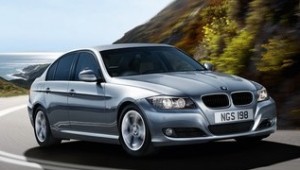
By Ralph Morton, editor, Business Car Manager
OH dear. You’ve probably only just got your self-assessment in on time – (deep sigh of relief) – so I guess the prospect of yet more taxation news is unwelcome. My apologies.
But this April there is a tax change that might have gone unnoticed by you. And it involves your business car.
There’s a change in the banding system for company car tax that is designed to favour even lower CO2 emission business cars than before.
Alright, you probably think as a whole we are doing pretty well already. Average CO2 emissions have fallen dramatically and are down to 138g/km – a 23% drop compared to 2000.
If CO2 emissions don’t mean anything to you, turn it round the other way: lower CO2 emissions mean reduced fuel consumption. Research company Ricardo says that over the last 10 years, fuel consumption of the average new car has improved from 40.6mpg to 52.5mpg.
So, all well and good, then.
Sub 120g/km tax break ends
Well, not quite. Back to this April’s company car tax change. Until the end of the current tax year, business cars with CO2 emissions below 120g/km qualified for a special company car tax rate of 10% if they were petrol, or 13% if diesel.
For the financial directors amongst you, these were called ‘Qualifying Low Emissions Cars’ – or Qualecs (which sounds too close to Daleks to be truly comfortable).
This special rate for sub-120g/km company cars will end, and from the beginning of the 2012/13 financial tax year, only those company cars with CO2 emissions up to 99g/km will qualify for the special rate.
It doesn’t stop there, though.
For the 2013/14 tax year, the lowest qualifying rate is reduced further. Company cars with CO2 emissions up to 95g/km CO2 will receive the lowest company car tax rate – see our company car tax table for more.
What effect will this have on my tax position?
Good question. In a bizarre way, the changes actually penalise those drivers who have taken up the baton of lower CO2 emissions.
Let’s take one of the key business car which has qualified for this low emission status, the BMW 320d EfficientDynamics. If you’ve chosen one of these as your business car, well done. You will have enjoyed lower company car tax rates as well as a great car all in one package.

Let’s have a look at the current 2011 Model Year car.
BMW 320d EfficientDynamics 2011/12
- CO2 109g/km, tax band 13%
- Tax payable £724 (20%) £1,448 (40%)
BMW 320d EfficientDynamics 2012/13
- CO2 109g/km, tax band 15%
- Tax payable £835 (20%) £1,671 (40%)
BMW 320d EfficientDynamics 2013/14
- CO2 109g/km, tax band 16%
- Tax payable £891 (20%) £1,782 (40%)
So if you’re a 40% tax payer, within two years you will be paying £334 more in company car tax than when you started driving your BMW.
If you want to keep on driving executive cars such as this, then you will have to take the tax rise on the chin. The alternative is to choose a more company car tax efficient vehicle – usually something smaller – to accommodate a lower company car tax allowance position.
And rather than identify sub-120g/km as the key tax break, aim for sub 99g/km, and preferably a sub 95g/km car to maintain your tax efficiency.
Expert commentary from Fleet Alliance on the changes to company car tax
“Forthcoming changes to the company car tax system in April will have a significant effect on the benefit in kind position of employees.
“In particular, those drivers benefiting from the current low emission tax discount will find themselves disadvantaged as the government changes its incentive low emission car policy. There will also be additional costs facing companies.
“We have just produced a White Paper that discusses these issues in some detail – readers can download a copy free. You can find it by clicking here: New White Paper shows effects of April tax changes.” Martin Brown managing director of fleet solutions provider, Fleet Alliance







